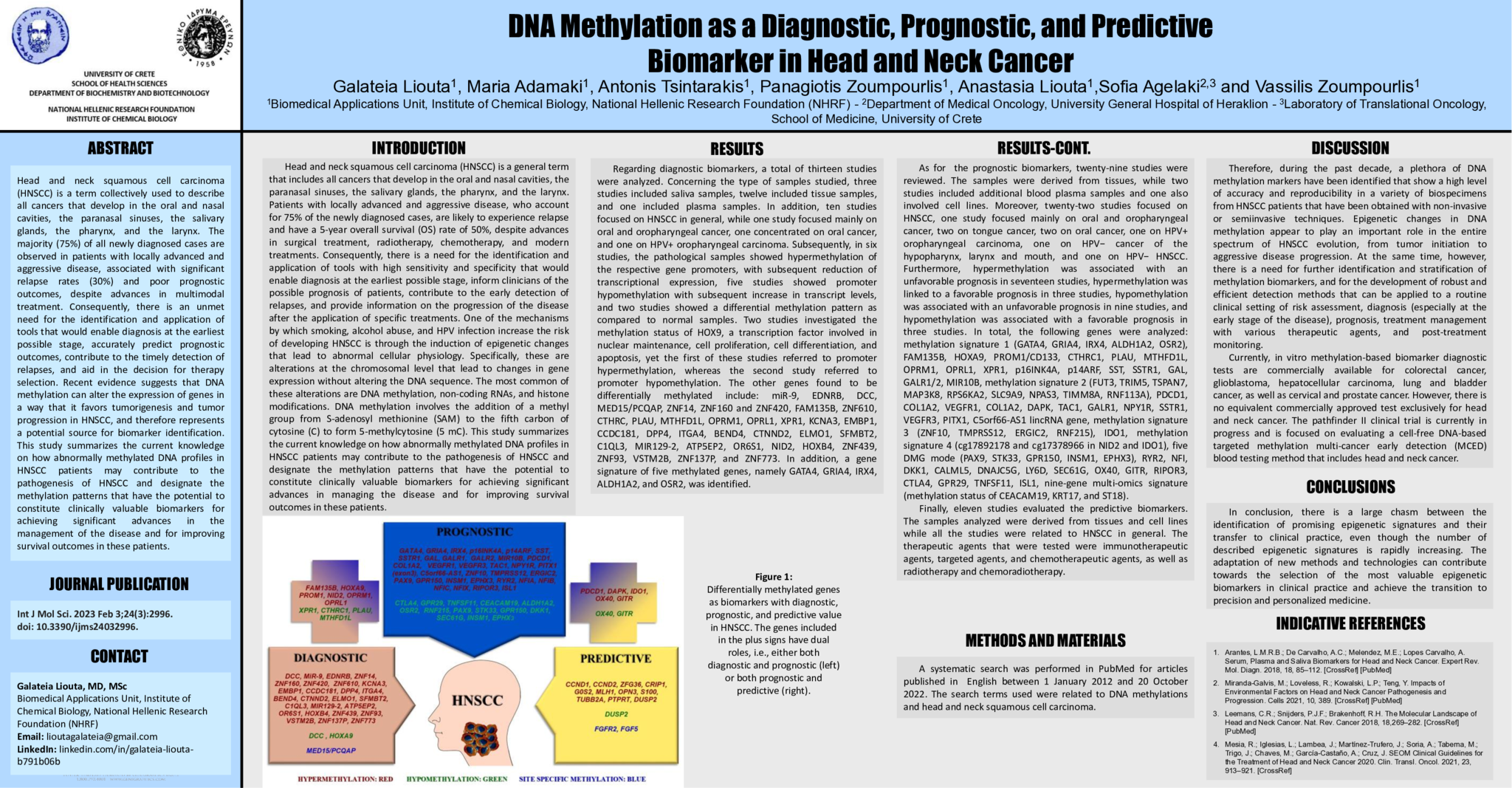Introduction: Head and neck squamous cell carcinoma (HNSCC) is a term collectively used to describe all cancers that develop in the oral and nasal cavities, the paranasal sinuses, the salivary glands, the pharynx, and the larynx. The majority (75%) of all newly diagnosed cases are observed in patients with locally advanced and aggressive disease, associated with significant relapse rates (30%) and poor prognostic outcomes, despite advances in multimodal treatment. Consequently, there is an unmet need for the identification and application of tools that would enable diagnosis at the earliest possible stage, accurately predict prognostic outcomes, contribute to the timely detection of relapses, and aid in the decision for therapy selection. Recent evidence suggests that DNA methylation can alter the expression of genes in a way that it favors tumorigenesis and tumor progression in HNSCC, and therefore represents a potential source for biomarker identification.
Aim: This study summarizes the current knowledge on how abnormally methylated DNA profiles in HNSCC patients may contribute to the pathogenesis of HNSCC and designate the methylation patterns that have the potential to constitute clinically valuable biomarkers for achieving significant advances in the management of the disease and for improving survival outcomes in these patients.
Methods: A systematic search was performed in PubMed for articles published in English between 1 January 2012 and 20 October 2022. The search terms used were related to DNA methylation and head and neck squamous cell carcinoma.
Results: Regarding diagnostic biomarkers, a total of 13 studies were analyzed. As for the prognostic biomarkers, 29 studies were reviewed and, finally, 11 studies evaluated the predictive biomarkers.
Conclusions: During the past decade, a plethora of DNA methylation markers have been identified that show a high level of accuracy and reproducibility in a variety of biospecimens from HNSCC patients that have been obtained with non-invasive or semi-invasive techniques. Epigenetic changes in DNA methylation appear to play an important role in the entire spectrum of HNSCC evolution, from tumor initiation to aggressive disease progression. At the same time, however, there is a need for further identification and stratification of methylation biomarkers, and for the development of robust and efficient detection methods that can be applied to a routine clinical setting of risk assessment, diagnosis (especially at the early stage of the disease), prognosis, treatment management with various therapeutic agents, and post-treatment monitoring.
- 7 προβολές




